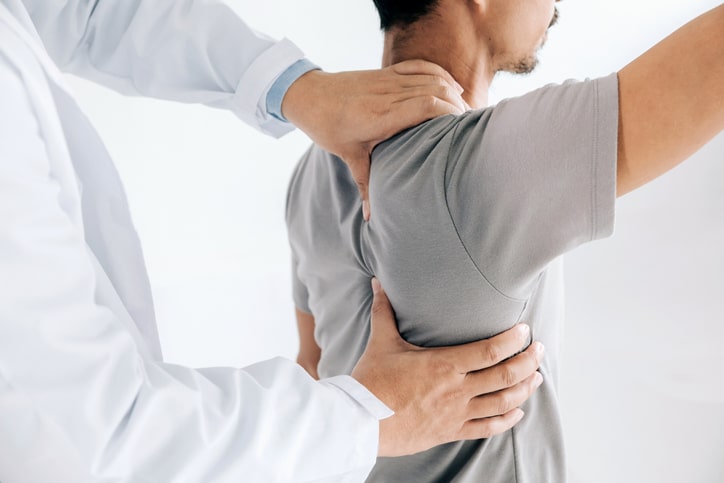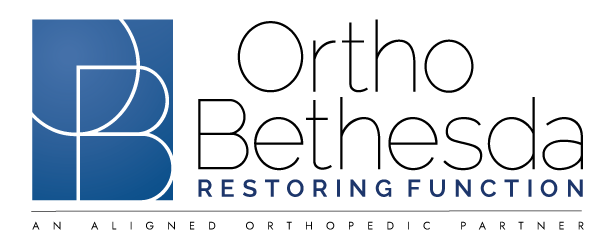
IASTM involves using a range of tools to enable clinicians to efficiently locate and treat individuals diagnosed with soft-tissue dysfunction. Many different materials have been used to make the instruments (i.e. wood, ceramics, plastics, stone and stainless steel). The Graston® Technique is one popular example of IASTM that is used here at OrthoBethesda.
What Is A Soft-Tissue Injury?
A soft-tissue injury involves damage to the muscles, ligaments, tendons and/or fascia somewhere in the body. Common soft-tissue injuries usually occur from a sprain, strain, blow to the body resulting in a contusion (ruptured blood vessels/bruising), or overuse of a particular body part. Soft tissue injuries can result in pain, swelling, bruising and loss of function. Adhesions within the soft tissue may develop as a result of repeated strain, surgery, immobilization or other mechanisms.
Is IASTM Appropriate For You?
IASTM can be used to help alleviate the following symptoms:
- Limited motion
- Pain during motion
- Motor control issues (muscle activation/coordination)
- Muscle recruitment issues
At OrthoBethesda, common conditions that are typically treated with IASTM include: tendinopathies, Achilles tendinosis, rotator cuff injuries, IT band syndrome and plantar fasciitis, among others.
What Does IASTM Do/How Does It Work?
Often, patients with soft-tissue injuries do not seek out physical therapy until the injuries have become chronic (weeks/months after injury). By this point, the body has completed most of its self-healing process. Scar tissue and adhesions are formed during this healing process, which limits motion and often causes pain.
Scar tissue and adhesions essentially act like super glue in your body. When scar tissue is created after injury, new cells are laid down excessively and in a disorganized manner. Scar tissue/adhesions prevent the muscle or other tissues from lengthening appropriately.
It is often necessary for the physical therapist to restart the healing process in order to remodel the soft tissues in the affected area. By introducing controlled microtrauma to affected soft tissue using IASTM, a local inflammatory response is stimulated. This microtrauma initiates reabsorption of inappropriate or excessive scar tissue and facilitates a remodeling of the affected soft-tissue structures.
After IASTM treatment, scar tissue can be remodeled so that the cells become organized in a direction that better promotes movement. Studies have shown clinical benefits of IASTM with improvements in range of motion, strength and pain perception following treatment.
What Should I Expect After An IASTM Treatment?
It is important to note that IASTM’s ability to reinitiate first-stage healing comes from the fact that it is essentially reinjuring the body (although to a lesser degree and in a controlled fashion). This may cause mild discomfort during the procedure. Patients may experience soreness in the treatment area for a day or two following treatment. Bruising can occur, although this is neither common nor desirable.
How Many IASTM Treatments Should I Expect Before I Improve?
Results vary from individual to individual. Patients usually receive two treatments per week, over 4-5 weeks. Most patients have a positive response by the 3rd or 4th treatment.
What Is Involved In A Typical IASTM Treatment Session?
- Warm up the tissue to make it more pliable (heat, aerobic exercise, etc.)
- Perform IASTM
- Engage in light exercise to promote proper movement patterns
IASTM is often accompanied by home exercise; stretching muscles to build flexibility and strengthening in the area of the injury. Patients who perform the home stretches and exercises prescribed by their physical therapist greatly accelerate the process.
Click Here to Download the PDF ">
">
Get in Touch
Contact OrthoBethesda Today!
Whether you’ve received a referral from your primary care physician or would like to visit our premier team to discuss any orthopedic issues you may be experiencing, we invite you to contact us today. Patients in Bethesda, MD, Arlington, VA, and beyond can give us a call at (301) 530-1010.
